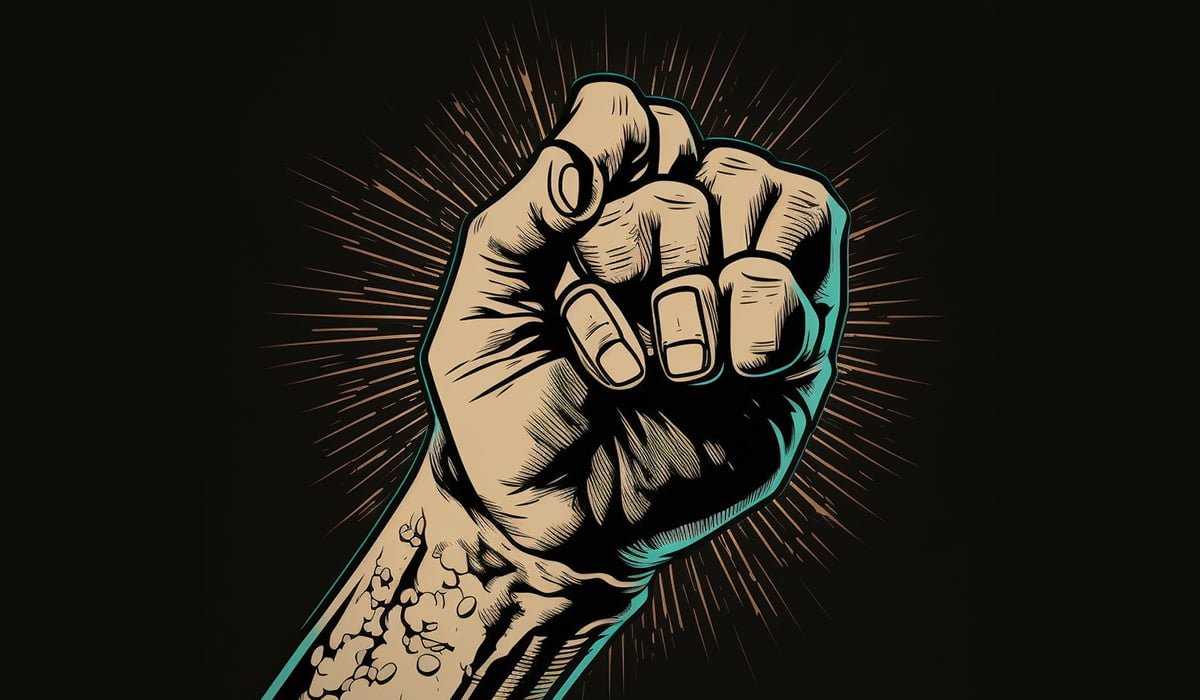Artists fight "Trending on Artstation" by trending on Artstation

Update December 26, 2022:
Artstation filters anti-AI posts from its feed. The platform justifies this decision with a better usability of the site. The mass distribution of anti-AI images also violates the terms of use, Artstation said.
For site usability, we are moderating posts that violate our Terms of Service. We understand concerns about AI and its impact on the industry. We will share more about improvements to give users more control over what they see and how they use ArtStation in the near future.
— ArtStation.com (@ArtStationHQ) December 22, 2022
Original article from December 15, 2022:
Some artists are fighting back against the spread of AI images. A particularly popular topic is now coming to the fore.
Epic's "Artstation" web platform is two things: First, a community of artists has been growing here since 2014, presenting their works and networking with each other and potential customers.
Second, "Trending on Artstation" has been the most popular prompt addition to tell an AI image system to produce high-quality digital art since the early days of DALL-E 2 and co. Through this addition, the image AI is particularly oriented to the most popular Artstation images it knows from training.
A different kind of "trending on Artstation"
Artists are particularly bothered by the fact that Artstation, a stronghold of human digital art, so to speak, allows AI artwork. Recently, AI-generated art has made it among the most popular artworks on the platform.
In protest, artists flooded Artstation with AI-hostile images over the past two days, uploading them to their portfolios and thus transporting them to Artstation's content feeds. Hundreds of artists participated in the action.
The creativity of artists protesting is so beautiful.#AIart #artstation pic.twitter.com/QKyyP0sder
— Joyce Da Silva (@joysilvart) December 14, 2022
Epic Games, which bought Artstation 2021, takes a stand on the protests in a FAQ: the company rejects a ban on AI imagery and says it would rather not interfere with AI research as long as it respects artists' choices and copyright.
Considering the so far unresolved copyright issues - the works of artists were used for the AI training without permission - this statement is hardly comprehensible and therefore evokes all the more fierce resistance from the artists.
With a new feature, Epic wants to at least build a bridge: In the future, artists should be able to decide whether their works can be used for non-commercial and/or commercial AI training. Other image platforms also want to go this way, or they ban AI art altogether.
Artist vs. AI is far from settled
The debate surrounding Artstation continues the arguments of recent months between proponents of AI imagery and artists. At the core of the discussion is not so much whether machine-generated art is actually art and could thus devalue human art because it is available in large numbers and at low cost.
This is a factor, of course, but the aforementioned point that artists feel exposed to new competition created by IT companies based on their own art used without asking them is responsible for the open hostility.
Particularly questionable are Stable Diffusion models that are fine-tuned with the works of individual artists and can transfer their style largely 1:1 to new motifs.
AI News Without the Hype – Curated by Humans
As a THE DECODER subscriber, you get ad-free reading, our weekly AI newsletter, the exclusive "AI Radar" Frontier Report 6× per year, access to comments, and our complete archive.
Subscribe nowAI news without the hype
Curated by humans.
- Over 20 percent launch discount.
- Read without distractions – no Google ads.
- Access to comments and community discussions.
- Weekly AI newsletter.
- 6 times a year: “AI Radar” – deep dives on key AI topics.
- Up to 25 % off on KI Pro online events.
- Access to our full ten-year archive.
- Get the latest AI news from The Decoder.